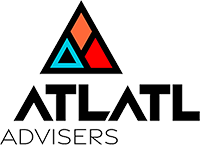Code of Ethics
Atlatl Advisers (the “firm”) and its associates have a duty of utmost good faith to act solely in the best interests of each client. Our clients entrust us with their funds and personal information, which in turn places a high standard on our conduct and integrity. Our fiduciary duty compels all associates to act with the utmost integrity in all of our dealings. This fiduciary duty is a core aspect of our Code of Ethics and represents the expected basis of all of our dealings.
Our firm adheres to its Code of Ethics and accepts the obligation not only to comply with the mandates and requirements of all applicable laws and regulations but also to take responsibility to act in an ethical and professionally responsible manner in all professional services and activities.
This code does not attempt to identify all possible conflicts of interest, and literal compliance with each of its specific provisions will not shield associated persons from liability for personal trading or other conduct that violates a fiduciary duty to advisory clients.
Standards of Conduct
- The interests of clients will be placed ahead of the firm’s or any associate’s.
- All known or potential conflicts of interest will be disclosed to our clients.
- Associates are expected to conduct their personal securities transactions in accordance with the policy and will strive to avoid any actual or perceived conflict of interest with the client. Questions regarding the appearance of a conflict with a client should be discussed with the Chief Compliance Officer before taking action that may result in an actual conflict.
- Associates will not take inappropriate advantage of their position with the firm.
- Associates are expected to always comply with securities laws, which include anti-fraud provisions.
- Investment advisor representatives will be appropriately registered or exempted in each jurisdiction they conduct advisory business as required by regulation.
- Business titles will be accurate and avoid public misperception as to the associate’s position, education, and background.
Protection of Nonpublic Information
Associates will exercise diligence and due care in maintaining and protecting client nonpublic personal information and will be familiar with the firm’s published privacy policies. Any known or suspected privacy breach must be immediately reported.
The firm may have written arrangements with third-party providers to perform certain client or firm services. While associates may not be directly involved in this activity, they are expected to not divulge information regarding securities recommendations or client securities holdings to any individual outside of the firm, except:
- To complete transactions or account changes (i.e., communications with custodians).
- As necessary to maintain or service a client account (i.e., communications with a client attorney).
- With a service provider that supports the firm and only following the firm entering into a contractual agreement that prohibits the disclosure or use of confidential information and only as necessary to carry out its assigned responsibilities.
- As permitted or required by law.
Personal Conduct
Associates are expected to conduct themselves with the utmost integrity and avoid any actual or perceived conflict with our clients. In this spirit, the following are required:
- Insider Trading – Associates must review and acknowledge their understanding and adherence to the firm’s Insider Trading Policy.
- Acceptance of Gifts – All associates are prohibited from receiving any gift, gratuity, hospitality or other offering of more than de minimis value from any person or entity doing business with the firm. This gift policy generally excludes items or events where the employee has reason to believe there is a legitimate business purpose and must be pre-approved by the Chief Compliance Officer.
- Political Contributions – The firm does not engage in direct or indirect political contributions. Any political contributions for or by the firm or anyone associated with the firm in a solicitation capacity is strictly prohibited. The firm’s policy is not designed to disallow personnel from engaging in their right of free speech but does place certain contribution level restrictions pursuant to investment advisor regulation. The firm will be guided by Rule 206(4)-5 of the Investment Advisers Act with respect to political contributions limits and political contributions. Therefore, the firm permits associates to make aggregate contributions up to $350 per election to an elected official or candidate the associate is entitled to vote, and up to $150 per election to an elected official or candidate the associate is not entitled to vote. These de minimis exceptions are available only for contributions by individual associates, not the firm. Under both exceptions, primary and general elections would be considered separate elections. Associates are obligated to promptly inform the firm of any political contribution as they occur.
- Splitting of Fees – Sharing or splitting of advisory fees will only occur with other appropriately registered personnel and only as approved by the firm.
- Director for an Outside Company – The firm prohibits an associate from serving as a director for an outside entity whose products, services or activities may be a conflict of interest.
- Outside Business Interests – Any associate wishing to engage in business activities outside of the firm must seek approval from the Chief Compliance Officer prior to the engagement.
- Payment of Services – Advisory client payment of services will be made to the firm only.
Employee Acknowledgement
New associates will acknowledge they have read, understand, and agree to comply with our Code of Ethics within the 10 days of hiring with the firm. All associates will annually reaffirm their understanding of the firm’s Code of Ethics.
Personal Securities Trading Policy
Associated and related persons of the firm will report, and the firm will periodically review, personal securities accounts and holdings. The firm defines an associated person (“AP”) to mean any employee of the investment advisor; a related person includes immediate family members who receive any economic benefit from an AP (i.e., spouse, minor, etc).
Code of Ethics and Personal Trading Policy Violations
All associates are required to promptly report any violation of this policy to the Chief Compliance Officer, including the discovery of a possible violation committed by another employee. Items that should be reported include but are not limited to non-compliance with federal securities laws, conduct that is harmful to our clients or the firm, etc.
As noted above, employees are encouraged to report any violations or apparent violations and such reports will not be negatively viewed, even if the reportable event upon further review is determined to not be a violation and the employee reported such apparent violation in good faith.
Code of Ethics and Personal Securities Trading Policy Sanctions
Upon discovering a violation of policy, the firm may impose any sanctions as deemed appropriate, including disgorgement of profits, trade reversals, and up to and including termination.















